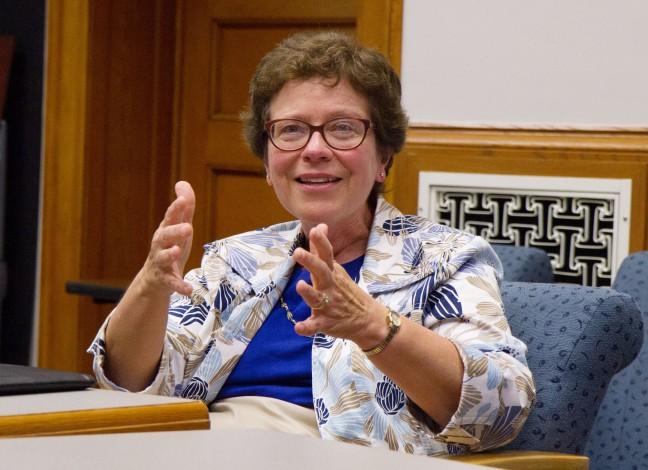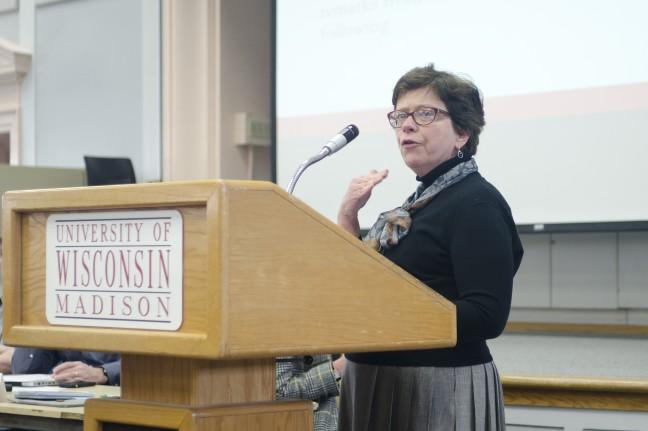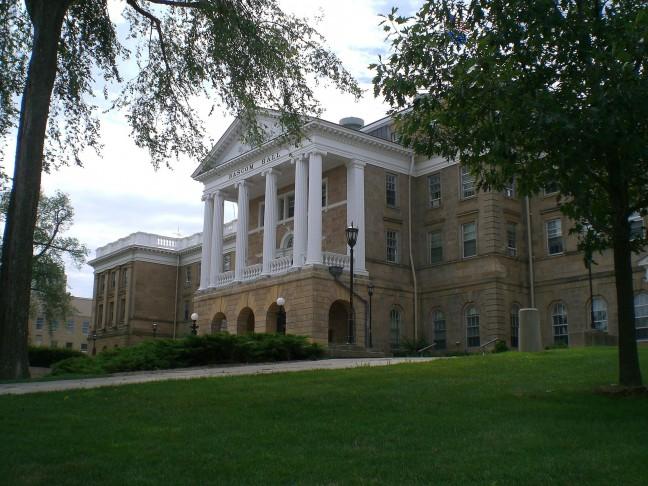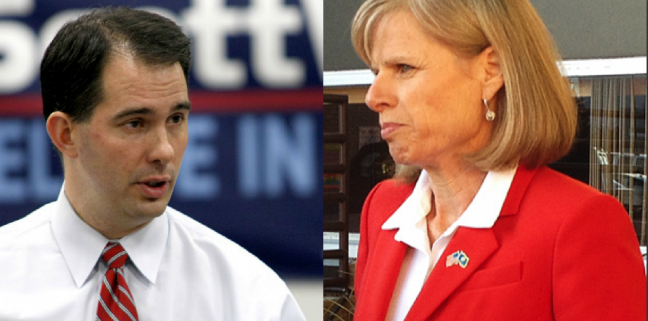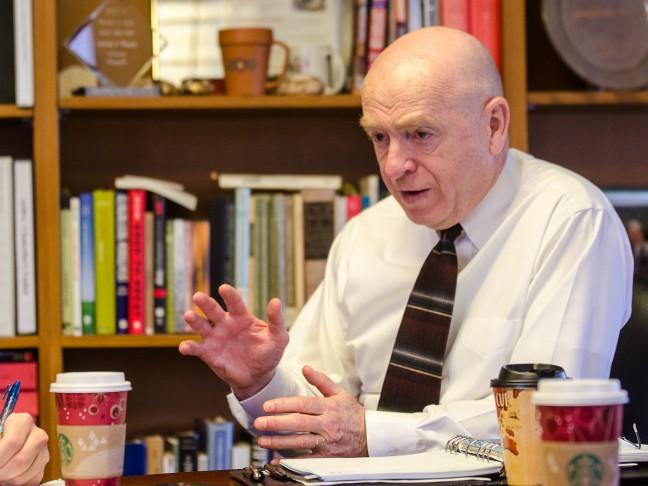
If you found yourself at the top of Bascom Hill this week, you probably heard a new sound among the usual cacophony of the University of Wisconsin campus: The chants of thousands of people rallying against the budget repair bill at the state Capitol.
At the heart of the drama behind the cries are provisions that would remove most collective bargaining rights for UW employees and require them to pay more toward pensions and health care.
In hopes of correcting Wisconsin’s nearly $137 million budget shortfall by June 30, the end of the fiscal year, Gov. Scott Walker’s bill would require UW and other public employees to pay half their pension costs – 5.8 percent of take-home pay for state workers – and in many cases at least 12 percent of their health care costs.
At UW, the groups affected include teaching assistants and some faculty. Though some UW System employees have been part of unions since 1971, academic staff and faculty on campus have not formally unionized.
While benefits have been generous in the public sector in Wisconsin, salaries have been relatively low, UW economics professor Andrew Reschovsky said.
Some say those lower-salaried employees at UW could be hit the hardest.
Impact for TAs unclear
The change in benefits for TAs is unclear, UW political science professor Dennis Dresang said, but the impact on the UW Teaching Assistants’ Association would be the same as other state unions.
TAA Co-President Kevin Gibbons said, like many other unions, the loss of contract bargaining rights is the main issue.
The budget repair bill is seen as a threat to the TAA in particular because of the union’s unique characteristics compared to larger public employee unions, Co-President Alex Hanna said.
Under the bill, the TAA and all other public employee unions would be required to hold annual membership votes to maintain their union status. For TAs, this obstacle would be complicated because the turnover rate each semester is high and most TAs change positions frequently, Hanna said.
Holding meetings and tracking down TAs for votes would require a lot of man hours and students resources the TAA does not have, Hanna said.
In addition, Hanna said TAs depend on special protections in their contracts more than other unions because of the variable nature of their jobs, including protections from harassment or being overworked.
“There are a whole slew of protections and not being able to negotiate these protections anymore, not being able to negotiate over anything besides wages, it’s really devastating for us,” Hanna said.
A potentially ‘regressive’ bill
The pension contribution increases would affect everyone from UW administrators and faculty to academic, clerical and janitorial staff, Reschovsky said.
Critics are calling the bill’s impact regressive because higher pension payments would affect lower-wage UW employees more. Some low-wage earners could be eligible for food stamps, energy assistance and other forms of government aid as a result of the bill, Dresang said.
Dresang added it is not clear how the pension contribution requirements in the bill are going to affect student employees, such as student health workers and those on work-study, as well as graduate employees.
UW leaders have also said the bill could prevent some UW employees from being eligible for benefits.
‘One form of waste goes away’
Despite the controversy, even critics in the UW System say certain aspects of the bill are necessary for UW employees.
The bill removes furlough days for public employees, which in the past were viewed as essentially a pay decrease for UW employees, according to UW System spokesperson David Giroux.
While furlough days for UW employees may soon be a thing of the past, Giroux cautioned that within the current fiscal year, remaining furlough days would coincide with increased health insurance and retirement pensions, presenting a fiscal challenge.
“We are increasingly mindful of that (possibility), especially for those of our employees that don’t earn high wages to begin with,” Giroux said.
UW Chancellor Biddy Martin also acknowledged the possibility of double pay cuts between April and June in her initial statement in response to the bill.
“Proposed changes of this magnitude and reach are bound to create enormous stress and strong reaction,” Martin said in the statement. “In such an environment, I worry about everyone.”
Walker has confirmed while his 2011-13 biennial budget will contain no new furlough days, furlough days included in the 2009-11 budget will remain in effect through the end of June.
Competition at UW
One potential long-term consequence of the bill is that over time, UW employees may choose to look for jobs elsewhere or accept more competitive offers from other universities.
However, UW leaders are attempting to maintain perspective. Martin said in her response to the bill that nearly all public universities are experiencing or scheduled to experience funding cuts from the state.
Martin also added the financial issues Walker is attempting to solve with the repair bill are “genuine problems and serious ones.”
“It is common for university employees to contribute more significantly to pension and health benefits than employees at UW-Madison have in the past,” Martin said.
Legislators must pass the bill by Friday in order for enough time to remain for the financial elements of the bill to be implemented before the next budget. Walker is expected to release the full details of the next biennium budget March 1.


